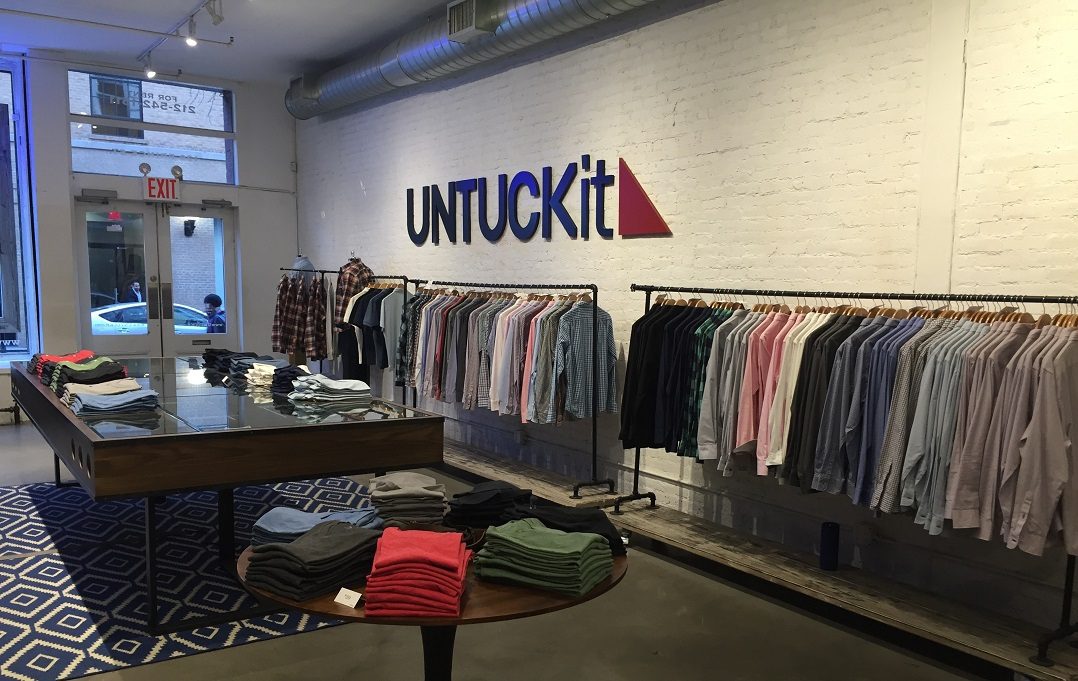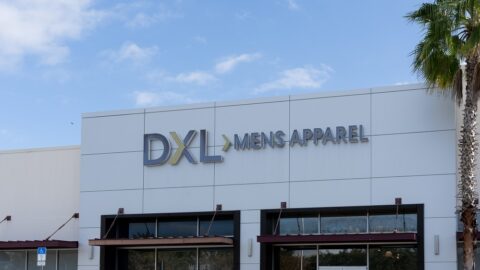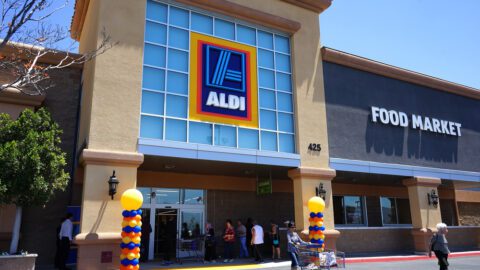 Expanding overseas can be formidable even for well-established brands. Retailers have to contend with different languages, cultures and tax laws, as well as sheer physical distances and the challenge of coordinating operations across time zones. UNTUCKit had one advantage going in: customers from its target country already have shown interest in its apparel products.
Expanding overseas can be formidable even for well-established brands. Retailers have to contend with different languages, cultures and tax laws, as well as sheer physical distances and the challenge of coordinating operations across time zones. UNTUCKit had one advantage going in: customers from its target country already have shown interest in its apparel products.
UK residents top the list of non-U.S. visitors who shop at UNTUCKit’s North American stores or order shirts online from their home countries, according to UNTUCKit Founder Chris Riccobono. UNTUCKit is building on this momentum with a dedicated UK web site and two physical locations in London, with plans to expand further into Europe in 2020 and 2021.
In this exclusive Q&A, Riccobono discusses:
- The differences between expanding in an established market and growing the brand somewhere new;
- The advantages of offering an omnichannel experience from the word go; and
- The challenge of maintaining a cohesive company culture across an ocean.
Retail TouchPoints (RTP): Extending a retail brand to another continent means marketing to a whole new culture. Do you plan on taking a different approach to your marketing in the UK compared to North America?
Chris Riccobono: We’re actually following the blueprint from when we launched in the U.S. It’s a lot of education regarding what we do and why we do it. We do less of that in-your-face messaging in the U.S. now because our brand is so recognized, but in England we’re redesigning how the web site flows, from top to bottom.
It will be a little bit more about educating the customer about how we are a company that designs shirts to be worn untucked at a perfect length. We’ll have before and after images and all the stuff we used at first in the states that we’ve now been able to pull back on. When people walk past our store or see us online, the first response is, ‘Okay, that’s interesting, let me learn more about this.’ So if they have a shirt that they wear untucked, they learn that it’s probably too long so maybe it looks sloppy.
We ran a lot of focus groups before launching to understand what they like, what types of shirts, what types of fabrics, what type of marketing messaging. We did do a lot of research around that, and we feel very confident that our strategy is the right strategy.
RTP: One of your plans for the London stores is to offer whiskey tastings. How do you plan on harnessing experiential moments like this to enhance the overall shopping experience?
Riccobono: We kind of did it just for fun when we opened our first store in SoHo, and at the time I didn’t realize how powerful that would be. Customers love that small experience during the weekend — I can’t tell you how many people I meet who mention the tastings to me.
We now have a lounge at every store, and we have the whiskey for those who want to relax and enjoy it, which we see happening all the time. We’re doing the same thing overseas, because in England, Scotland and Ireland, that whole area, they’re more into whiskey than we are. We’re very excited about that, it differentiates us a little bit, shows off that relaxed vibe of our brand, and I think it’s going to have the same results that we have seen here.
RTP: Your plans for the UK include both two stores and a dedicated web site. What are the benefits of launching through both channels, as opposed to directing shoppers to your North American site?
Riccobono: We look at our operation as an omnichannel experience. We don’t say okay, we need to perform better in stores, or we want our customers to go online, they have to shop here or they have to shop there. We just want customers to buy where they want to buy at that moment, wherever is most convenient. Some people are people who go to malls: they like to go and like to wander, and we want to have a presence there. Other people who don’t like to shop, but like to go to these trendy areas and maybe grab a bite to eat or go to a bar, and it’s great to be in those locations too.
Once you find the store and pick out your size you may want to buy online, especially if you don’t live close to the area. It’s an important offering in this omni world that we’re living in these days, which we were an early adopter of. We call it omni-convenience, and it’s basically being able to buy in the most convenient manner for the person who’s buying.
RTP: On the more technical side, operating in a new country means dealing with their tax laws and conversion rates. How do you plan on overcoming this challenge?
Riccobono: It’s very complicated. We hired a team of lawyers, brought on some consultants who have done this before and hired people for two senior positions in England. We found two great fits for the positions, one who has been involved with an e-Commerce startup and another who was at a major retail firm. We now have a great team and that makes it easy, but we needed to hire that team to navigate all the different rules.
RTP: What are you biggest lessons learned from the first 75 stores you opened in North America, and how do you plan to apply this knowledge as you enter a new market?
Riccobono: We didn’t start this company in the fashion business, so the amount we learned is beyond imagination, with all the mistakes we made and the different tweaks we made along the way to be successful. But basically, from a store perspective, we learned what’s important and what’s not from a visual merchandising perspective and from investment into store employees who keep the culture.
Obviously, going into England that’s really going to be the biggest challenge. We have our culture, our company and our 100+ corporate employees here in the U.S., and meanwhile there are going to be two or three people running this business starting in England. They’ll be relying on our team here, but we’re not there, so that makes it more challenging.
Whenever you go into a new country you have to uphold your culture. You have new employees who have not seen your brand and don’t know the journey of what it took to get where we are today. So it’s up to us to train and educate, to bring employees from over here to work in those stores early on.













